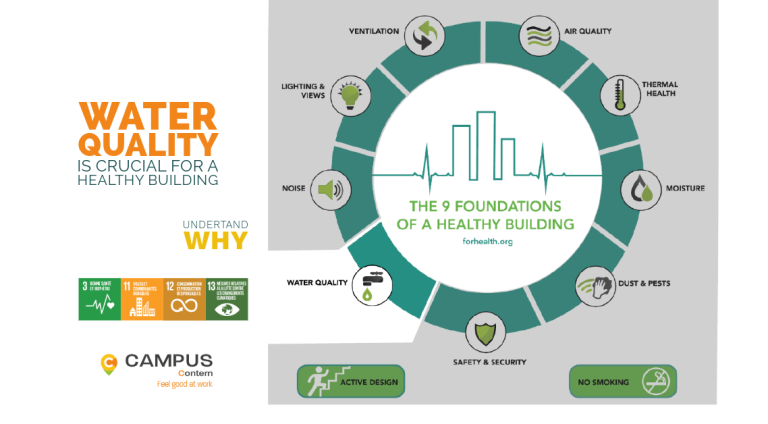Water quality is crucial for maintaining health, not only for hydration but also to protect against serious diseases.
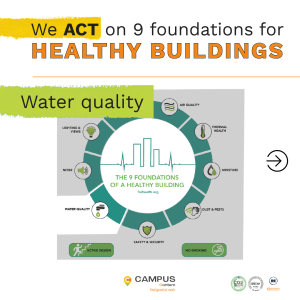
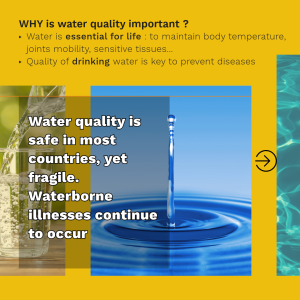
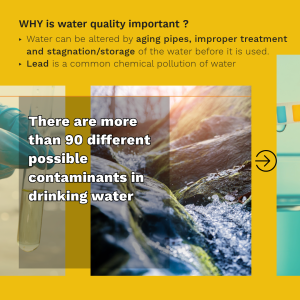
Why is it important?
While water is essential for body functions like temperature regulation, joint lubrication, and waste removal, contaminated water can carry pathogens, heavy metals, and harmful chemicals that threaten health.
Globally, poor water quality contributes to about 850,000 deaths annually from diarrheal diseases, with millions more affected by contaminants like lead and waterborne pathogens.
What can affect water quality?
Aging pipes : building water systems in the U.S. are generally reliable, yet they are aging, with many pipes over a century old. This deterioration increases the risk of contamination from corroded pipes, leaks, and exposure to harmful chemicals.
For example, the Flint, Michigan water crisis highlighted the dangers of lead contamination, particularly for children. The CDC reported that lead-contaminated water is especially harmful to children, affecting cognitive development, and has no safe blood level for young individuals. Adults are also at risk, as elevated lead levels can lead to cardiovascular issues, kidney problems, and nerve damage.
Improper water treatment : Contaminants like polyfluoroalkyl substances (PFASs), used in products for non-stick and stain-resistant properties, have been found in water sources.
PFAS exposure is linked to health issues including cancer, obesity, and immune suppression, affecting both adults and children.
Water stagnation / storage : Microbial contaminants such as Legionella bacteria, which thrive in stagnant or warm water, pose another significant risk.
Legionella can cause Legionnaire’s disease, a severe respiratory condition, especially when building water systems are not well-maintained. Between 2011 and 2012, Legionella accounted for 2/3 of waterborne illness outbreaks in the U.S., causing illnesses and deaths, often in healthcare facilities.
What can we do ?
To maintain water quality in buildings, proper infrastructure maintenance is essential. Measures like regular pipe replacements, using safe materials, routine water quality testing, and proper filtration can help protect building occupants from harmful contaminants.
These preventive actions create safer environments, reduce disease risks, and ultimately improve public health.
@CAMPUS CONTERN it means :
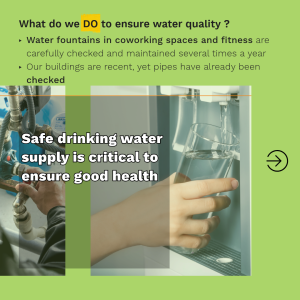
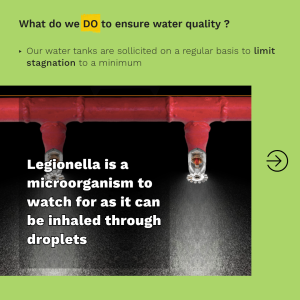
- We have a strict control and maintenance on all of our water fountains in coworking spaces and the fitness room to ensure proper water filtering
- Though our buildings are recent, pipes and leaks are monitored and checked
- Water tanks are solicited on a regular basis to avoid stagnation and possible contamination.
Our Goal :
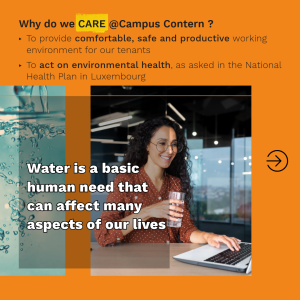
- To make sure that our tenants have a safe and healthy work environment. They spend a lot of time in our buildings, it is our responsibility to do our best to reduce the causes of fatigue, absenteeism and to foster concentration and performance
- To protect our tenants from chronicle diseases and play our part in the National Health Plan
Source : “The 9 foundations of a healthy building” Harvard School of Public Health – forhealth.org
